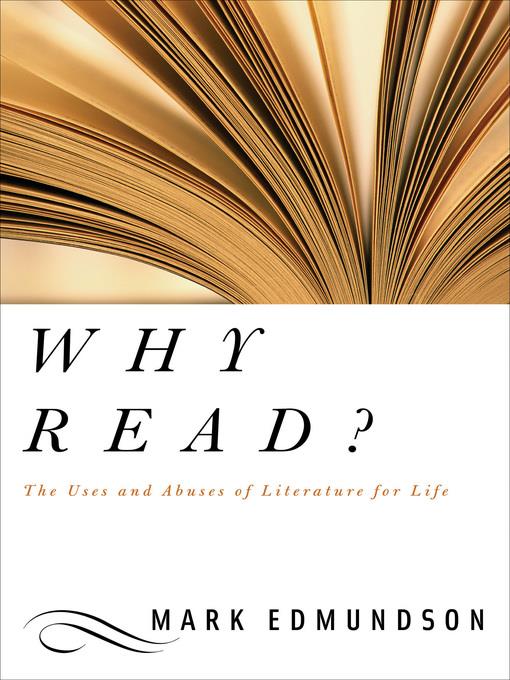
Why Read?
کتاب های مرتبط
- اطلاعات
- نقد و بررسی
- دیدگاه کاربران
نقد و بررسی

September 20, 2004
Extending the argument of his tome Literature Against Philosophy: Plato to Derrida, Edmundson laments the state of liberal arts teaching--and, despite his protestations to the contrary, effectively caricatures critical theory as the soulless antithesis to his own humanistic pedagogical ideals. While a stylish, erudite piece of rhetoric, Edmundson's book is dated, rooted as it is in the author's Harper's article of 1997 and in the culture wars of that decade. Edmundson, a professor of English at the University of Virginia, claims he is not"antitheory," but a humanist who believes a liberal arts education ought to expand minds rather than shut them down. For him, critical theory comes"between" the reader and the power of great books, distracting students from the big questions concerning life and how best to live it--questions central to a democracy. As an alternative approach, Edmundson permits students to identify with characters in a naive manner currently out of favor in the academy and highlights the author's voice (a technique he calls"ventriloquism"). Edmundson gives examples of how he teaches classics from Wordsworth to Orwell and takes positions on canonicity, multiculturalism and pop culture. Yet for all its learning and elegance, Edmundson's challenge to teachers might have done more to rejuvenate or deepen the tired debate in which it engages had its observations extended beyond his own classroom.

October 1, 2004
Edmundson (English, Univ. of Virginia, Charlottesville) calls for a new humanist education that stresses the importance of literary reading and teaching in making a life and ethical decisions. Expanding on his essay "On the Uses of the Liberal Arts" (Harper's ), he discusses the interpretation of literature as a process of understanding, identification, impersonation, and spiritual truth, which leads to the reader's developing a final narrative or life vision. Using this framework, Edmundson describes his own method of teaching Henry James, Shakespeare, Homer, Dickens, and Wordsworth and also considers the critical writings of Emerson, Orwell, Frye, de Man, and Matthew Arnold, among others. He criticizes America's consumer society and university culture, seeing the proper study of literature as a way to make the society more open, fulfilling, and democratic. Engaging and controversial, this book will lead to discussion and debate. Recommended for education and literature collections.--Gene Shaw, NYPL
Copyright 2004 Library Journal, LLC Used with permission.

September 1, 2004
Reading literature nurtures our intelligence, our imagination, and our very soul. So believes Edmundson, a professor at the University of Viriginia, as so many great thinkers have believed over the centuries, writers Edmundson quotes with passion and expertise as he places literature at the very heart of a liberal-arts education, which he fears is becoming an endangered tradition. An eloquent advocate, Edmundson continues the invaluable refresher course on the significance of the humanities that he's been so ably conducting in " Harper's" magazine and in his previous book, " Teacher" (2002). Here he objects to the commercialization of higher education as students are recast as consumers and instruction is reduced to job training. Edmundson feels that students deserve, and need, more. He avers, "The purpose of a liberal arts education is to give people an enhanced opportunity to decide how they should live their lives" and that literature is "" the" major cultural source of vital options." Edmundson's many-faceted argument is forthright, rigorous, and inspiring as he convincingly links literature with hope and humanism with democracy.(Reprinted with permission of Booklist, copyright 2004, American Library Association.)

























دیدگاه کاربران